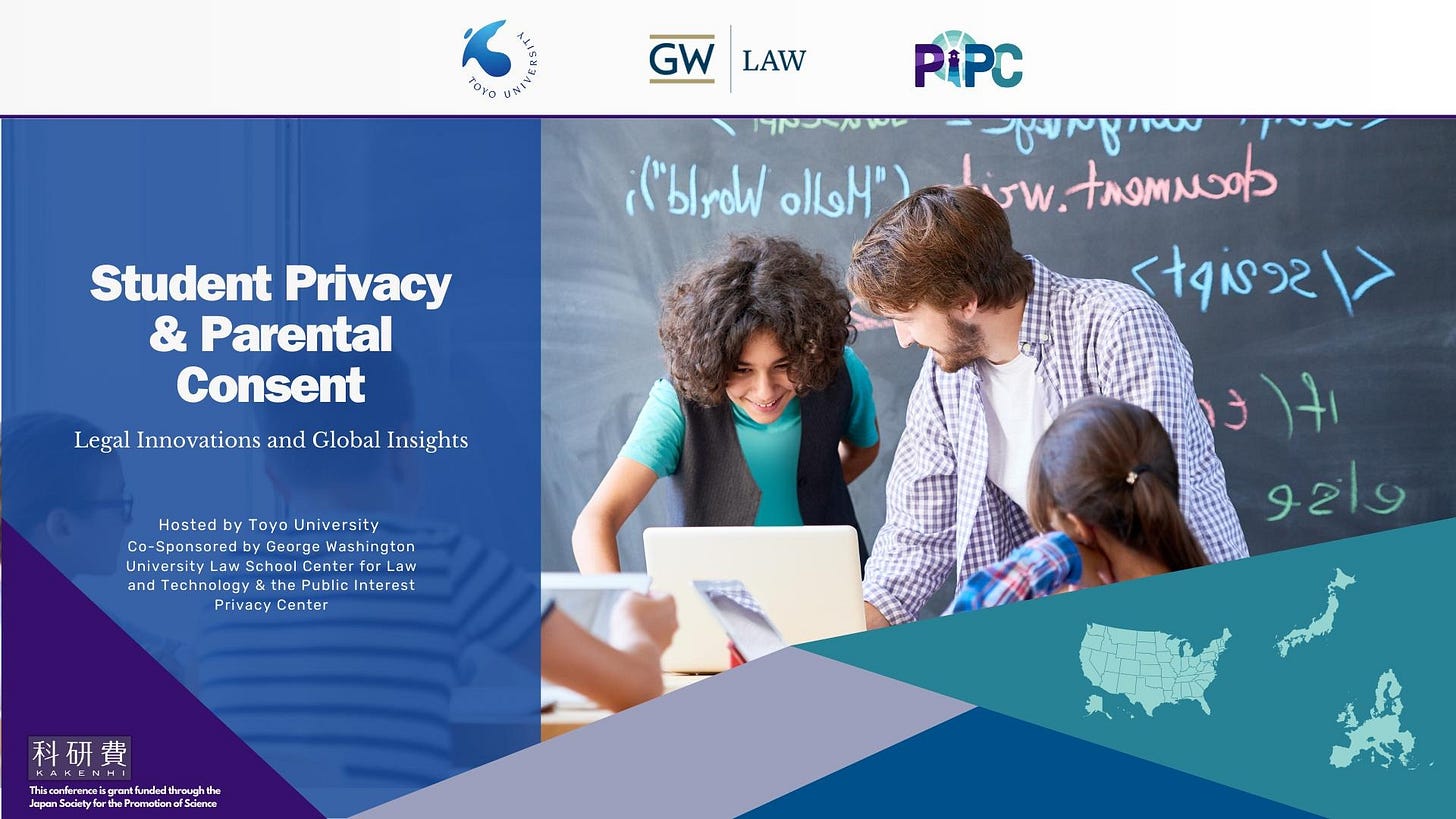Conference next week + New Fixing FERPA
Want some free IN-PERSON child and student privacy content in your life? Of course you do! Don’t forget to register for our conference on February 7th, “Student Privacy & Parental Consent: Legal Innovations and Global Insights,” and the February 6th pre-conference workshop, “Child Privacy Online,” at George Washington University in Washington, DC. We have over 25 incredible experts joining us, and we would love many of our subscribers to join too! The event is close to capacity, so register now to secure your spot. See our event page for the full agenda for each day and to complete your registration today.
PIPC Releases 7th Installment in the “Fixing FERPA” Series: FERPA Must Clearly Protect All PII Accessible to Schools
In an era of rapidly evolving education technology, PIPC is sounding the alarm about critical gaps in student privacy protections. PIPC recently released a new policy brief, "FERPA Must Clearly Protect All PII Accessible to Schools," which urges policymakers to modernize the Family Educational Rights and Privacy Act (FERPA) to reflect the realities of today's digital classrooms.
"FERPA, the bedrock of student privacy law, contains vital protections but is struggling to keep pace with the digital transformation of our schools," said Amelia Vance, President of PIPC. "This is not just a theoretical concern; it's an urgent issue with real-world consequences for students."
The brief, which is the 7th installment in the Fixing FERPA series, highlights how schools increasingly rely on technology that tracks and analyzes a wide range of student digital activity, including emails, internet searches, website visits, and even keystrokes. This data can reveal incredibly sensitive information about students, including their health, social relationships, academic progress, sexual orientation, religious beliefs, political views, and personal interests.
"Without updates to FERPA, the third-party edtech companies that schools rely on may collect or deduce tremendous amounts of sensitive student PII," warned Vance. "This leaves students vulnerable to privacy violations and potential harm."
PIPC's brief specifically calls for eliminating the outdated concept of "education records" under FERPA and replacing it with a broader definition that encompasses all student PII readily accessible to schools, regardless of whether it is generated by humans or automated systems. This would ensure that data collected by edtech platforms is clearly covered by FERPA and subject to parental and student rights to access and challenge the information.
"This is a timely and critical intervention," emphasized Vance. "Modernizing FERPA is essential to safeguarding student privacy in today's digital learning environment. We urge policymakers to take action now to protect the sensitive information of our students."
PIPC believes that amending FERPA to reflect the realities of modern education and technology will not only strengthen student privacy protections but also provide greater clarity and consistency for schools, parents, and students.
This is the 7th recommendation in the Fixing FERPA series, which also includes:
Fixing FERPA: Strengthening Transparency & Confidence in FERPA Enforcement
Fixing FERPA: Distinguishing Between Core & Secondary Technology Uses
Fixing FERPA: Clarifying Data Sharing Through a Defined Pedagogical Exception
Fixing FERPA: Increasing Transparency to Make FERPA’s Privacy Protections More Meaningful
Additional “Fixing FERPA” recommendations will continue to be released by PIPC over the next several months.





